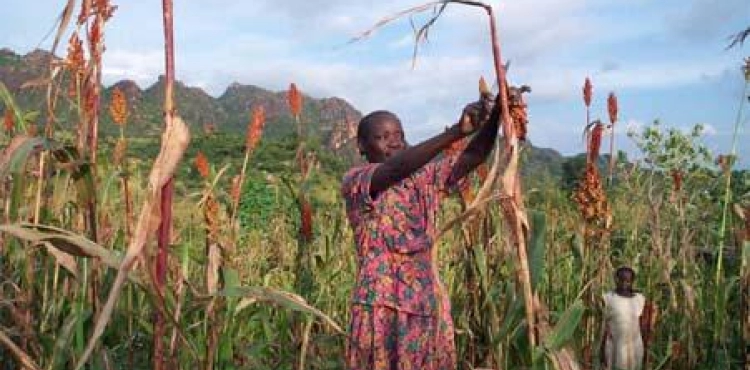Khartoum _ Agencies
Sudanese businessman Samir Ahmed Kassem painted a vivid picture of his country when Washington lifted a year ago the economic sanctions it imposed for two decades on Khartoum, but the deterioration that has occurred since then has made him dispose of dozens of workers in his factory.
"Now our factory works for only eight hours, compared to twenty-four hours in the past," says Qasim from within his organisation that manufactures food and juices.
The Sudanese economy was expected to surpass its crisis following the abolition of the sanctions on 12 October 2017.
Sudanese businessmen, however, assert that Sudan´s survival in the "List of countries sponsoring terrorism" has shattered these hopes.
"The high cost of production has forced us to demobilize many of our workers," says Samir.
While factory workers are engaged in wrapping candy pieces inside plastic containers, they wear masks and cover their hands with gloves, indicating that hundreds of factories have closed their doors.
Although legal impediments to investment in the Sudan have been eliminated, international banks, global financial institutions and investors are still afraid to engage in business dealings with a country that Washington lists on its blacklist, officials show.
"We lost funding opportunities looking for good projects," says Osama Dawood Abdul-Tayef, head of the Sudan´s largest group of companies.
The 60-year-ago Abdul-Taif, who manages investments of more than 1.5 billion dollars in various fields from agriculture to real estate, adds "The problem in constraints."
He affirms that the survival of the Sudan in the list of States sponsoring terrorism has been deprived of international resources that would have helped the economy recover from the deterioration.
"It is in the interest of Washington and Khartoum to get out of this tunnel, but unfortunately the United States is changing its goals every time, and it is difficult to reach a definitive solution," Osama told AFP while he was at his golf course in the Khartoum suburb.
In 1993, Washington placed Khartoum on the list of state sponsors of terrorism on the pretext of supporting militant Islamist groups, and bombed in 1998 industrial facilities in Khartoum.
The founder and former leader of al-Qaeda, Osama bin Laden, lived in the Sudan during the period from 1992 to 1996.
The impact of the Sudan´s economic crisis has increased since January, and the vision of the queues for automobile fuels, loaves of bread and other necessary items has become a regular thing in the streets of Khartoum.
The country´s status on the list has also led to a shortage of foreign currency, as international banks have refrained from making transfers from Sudanese banks.
While the country´s economy over a decade and up to 2008 has been growing at 6%, it is declining thereafter. The crisis emerged after 2011 when South Sudan separated from the rest of the country, taking oil revenues and decreasing foreign exchange reserves.
According to the International Monetary Fund (IMF), the Sudanese economy grew by 3.3 percent in 2017 under an external debt of about 55 billion dollars.
Since January, food prices have doubled and the inflation rate has been approaching 70 percent, causing protests against the government.
Ahmed Amin, chairman of the group of companies "CBC ", is one of the largest companies in the country, "The trade deficit 60% and this directly affected the devaluation of the Sudanese pound."
He notes that the graduation of Sudan from the Washington list would be a message to overseas investors that "now you can support Sudan."
However, Osama Abdul Latif pointed out that the economy of the Sudan was not only affected by what Washington did, but by what the Sudan itself did, which "lost opportunities" to increase its growth while enjoying the incentives of oil revenues.
"I think we should have worked more in the agriculture sector using the income we enjoyed from oil," he added.
The Sudan imports millions of tons of wheat and other cereals, although agricultural products are its main exports. It has animal wealth amounting to about 120 million heads and reserves of gold and iron.
The head of the Washington diplomatic mission to Khartoum, Stephen Kokoss, told AFP that the road was still difficult for Sudan.
He asserts that Sudan´s blacklist placed restrictions on the growth of the economy, but stressed that Sudan "had bad economic choices for years."
"From the United States, the biggest and most important thing that can be done is to reach a place that will allow it to remove Sudan from the list of sponsors of terrorism," he said, adding that "part of my agenda during my stay here is to help Sudan to fulfill the conditions" that allow it.
He stressed that the Sudan should undertake a number of reforms in its economy, such as the unification of the exchange rate between official value and the black market.
A veteran businessman says "Good words alone will not help people. We have to find a way to help them. The last we want is the presence of hungry people. "












